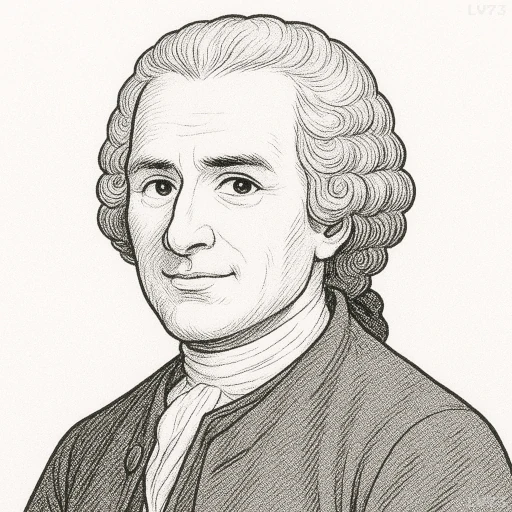“Childhood is the sleep of reason.”

- June 28, 1712 – July 2, 1778
- Born in Geneva
- Philosopher, political philosopher, writer, composer
table of contents
Quote
“Childhood is the sleep of reason.”
Explanation
In this quote, Jean-Jacques Rousseau suggests that childhood is a period in which reason—the ability to think critically, logically, and make rational decisions—is not fully developed. He compares childhood to sleep, implying that the mind is not yet fully awake or capable of independent judgment. Instead, during this stage, children are more driven by instinct, emotion, and immediacy rather than the reasoned reflection that characterizes adulthood. This reflects Rousseau’s view that children are naturally good but not yet capable of complex reasoning or self-awareness, which only develops as they grow older and mature.
Historically, Rousseau’s thoughts on childhood were groundbreaking in the 18th century. During his time, children were often seen as miniature adults, expected to conform to societal rules and expectations from an early age. Rousseau, in works like Emile, or On Education, argued that childhood should be seen as a distinct and important stage of life, with its own unique needs and characteristics. He believed that children should not be forced to adopt the strict moral and rational standards of adults prematurely, but rather should be allowed to develop naturally, guided by their own experiences and senses.
In modern contexts, Rousseau’s idea resonates with our current understanding of child development. Today, it is well recognized that cognitive abilities and reasoning emerge gradually in children as they grow and are influenced by both biology and environmental factors. The metaphor of childhood as “sleep” aligns with the idea that children must undergo significant mental and emotional growth before they can engage in deeper levels of reasoning and decision-making. Rousseau’s quote encourages reflection on the importance of allowing children to experience a phase of innocence and exploration before the weight of adult reasoning is introduced. It also calls for a recognition of the distinct needs of children in education and society, rather than forcing them into adult-like expectations prematurely.
Would you like to share your impressions or related stories about this quote in the comments section?

